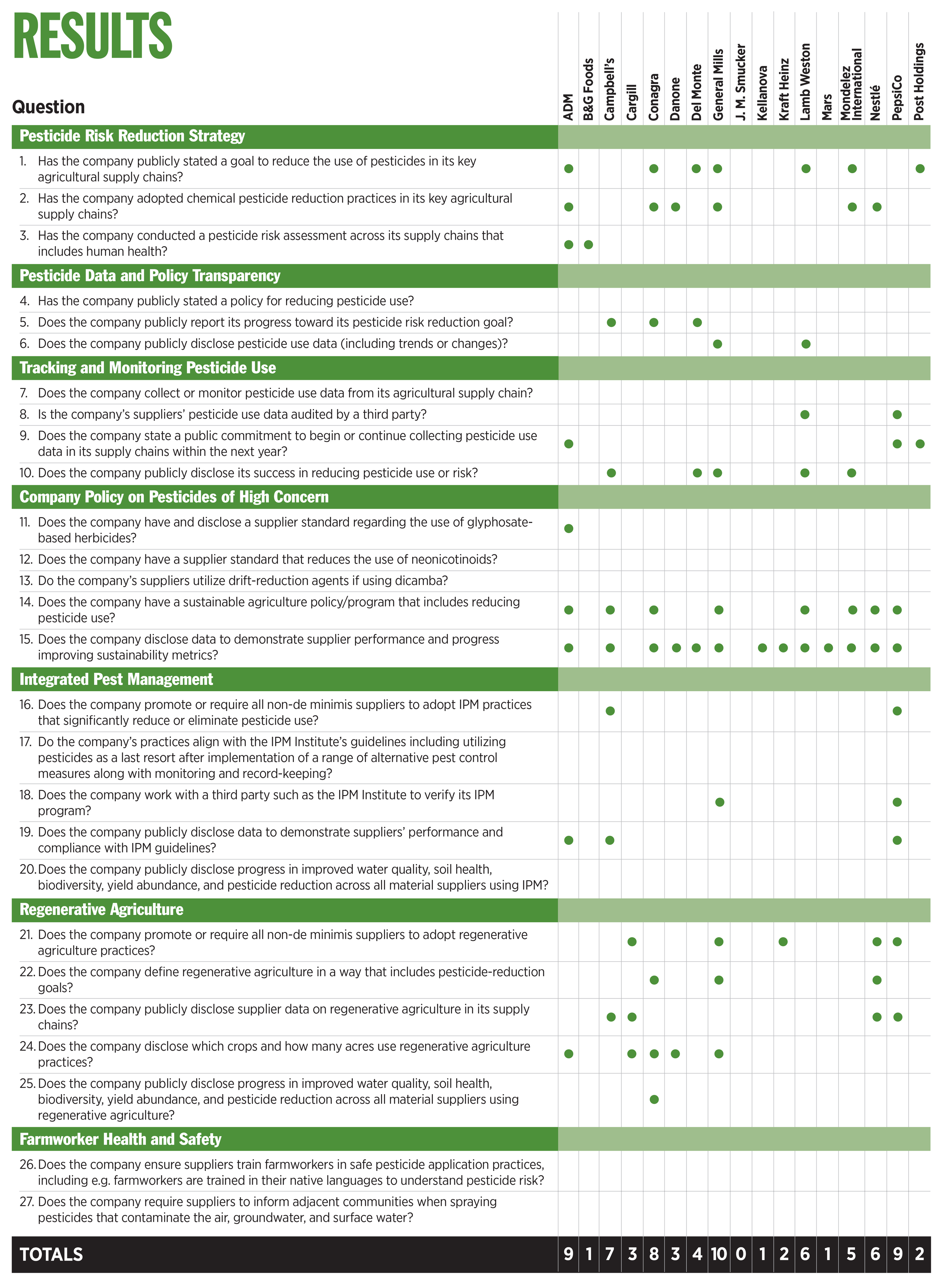2023 Pesticides in the Pantry:
Transparency & risk in food supply chains
This report benchmarks major food manufacturers on their adoption of practices to measure and mitigate risks related to the use of synthetic pesticides in agricultural supply chains. In scoring a set of questions related to pesticide-related company strategies and disclosure, the report provides a picture of the industry’s overall performance, distinguishes leaders from laggards, and provides examples of notable practices. These benchmarks provide a pathway for assessing company performance to support investors in advocating for long-term value.
For this report, 17 major food companies were scored on a total of 27 indicators. Scores are based on a thorough review of publicly available information, including companies’ published reports, press statements, and website text. In the case of international companies, U.S.-specific information was used where available; if the company did not clearly differentiate between U.S. and global policies, the latter were reported.
This year, companies are starting to differentiate themselves by publicly identifying their pesticide reduction commitments and practices, or lack thereof. Some companies’ disclosures on pesticide use management have improved over the past two years while, overall, scores declined due to increased specificity of the key performance indicators.
RESULTS:
The following 17 companies are included in this review (listed alphabetically): Archer Daniels Midland (ADM), Bloch & Guggenheimer (B&G) Foods Inc., Campbell Soup Company, Cargill, Conagra Brands Inc., Danone S. A., Del Monte Pacific Limited Foods Inc., General Mills Inc., Kellanova, The Kraft Heinz Company, Lamb Weston Holdings Inc., Mars Incorporated, Mondelēz International Inc., Nestlé, PepsiCo Inc., Post Holdings, Inc., and The J. M. Smucker Company.
Each company was given the opportunity to review the information compiled in this report and provide additional information or clarification.
Questions were written to elicit key information about supply chain pesticide use. Questions focus on transparency around pesticides, whether companies have conducted assessments to understand the risks associated with use of pesticides in their supply chain, and whether companies have adopted strategies or policies to reduce the use of pesticides in their supply chain. This deliberate recognition of pesticide use as an issue to be addressed is a critical first step on a company’s path toward identifying solutions.



